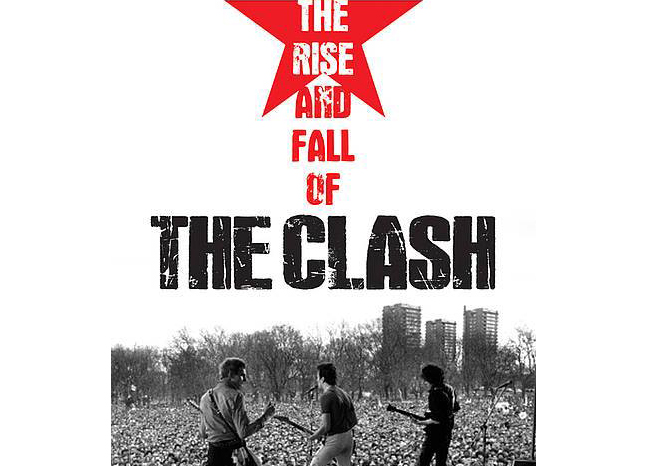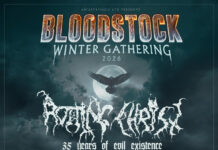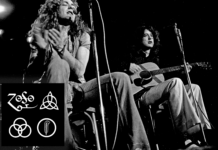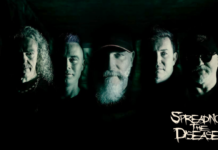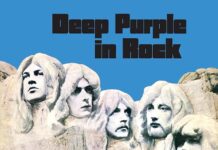Documentary showing the moving story of The Clash
“Be not afraid of greatness. Some are born great, some achieve greatness and others have greatness thrust upon them.”
Thus with a quote from Shakespeare this DVD begins giving way to the sound of helicopters hovering over a huge auditorium in the States, then cutting to ground level as The Clash stroll towards the stage.
Once upon a time a Mott the Hoople fan got hold of an ex-pub singer, a drummer given the boot from the Pat Travers Band, and an art college dropout and sought to offer street credibility by making raw angry music that challenged the status quo, then they began to get big. Today, most people are aware The Clash were one of the original London based punk rock bands but ask them to name a song and they’ll give you Rock the Casbah or London Calling; popular hit singles, great ones in fact, but those song’s political messages are way down on the list of importance.
Directed by Danny Garcia and co-produced by David Mingay and Robin Banks, a narrative voiceover informs us that the intention of this documentary film is to show how on the pinnacle of mega-success the walls came tumbling down for the band. Misunderstandings, the naivety of youth, drugs, jealousies and Machiavellian backstabbing are all offered as reasons, and certainly there are plenty of folk on hand ready to offer an opinion when interviewed; that too few of them are the principle players is unfortunate. Vocalist/rhythm guitarist Joe Strummer unfortunately passed away in 2002, guitarist/vocalist Mick Jones offers plenty of lip service on camera, drummer Topper Headon and bass player Paul Simonon noticeably absent, though it’s his former wife (with that relationship never clarified on screen) singer Pearl Harbour who’s first up on screen to offer her opinions. It’s true we get archive interviews, both filmed and some presumably from radio interviews with the other three, but we have to take into account how much they said at those times was earnest expression and how much for the simple sake of publicity, whereas more recent footage might have offered greater hindsight.
Early and rare film footage is offered, though never a complete song played, and those early days are fast forwarded to get us to the eighties as soon as possible at which point the documentary starts to sprawl out offering high brow intellectualism for the middle classes and their Sunday broadsheets. Fortunately, we also get insight, as when it’s suggested that they weren’t so much a political band as a satirical one.
Always an image conscious band, their public persona was further pigeonholed by their manager Bernie Rhodes. From the evidence given, Rhodes was insanely jealous of Sex Pistols’ manager Malcolm McLaren and used the same dirty tricks to engineer their career, but was in it for the long game until his ego got so overblown he started plotting and causing tension that would ultimately break up the band. Strummer is described as naive of the real world despite his age, and by those close to him, and Rhodes became a father figure, and thereafter there became different sides that wouldn’t so much lead to a battle, as much as undignified retreats. Cowardly, instead of trying to help Topper Headon overcome his heroin addiction they sacked him and brought back Terry Chimes who’d played drums on their debut album, and it’s in interviews with him and latter day drummer Peter Howard who make the most sense of the worsening tensions in the band as they escalated. Chimes notes that first time around they all used to argue with him, and on his return it was amongst themselves, Howard who was probably a youngster when he joined appears to have been more mature even then, realising they were being told lies regarding business and how much money was being made, and vanishing without explanation.
It’s at the point where Mick Jones is fired from the band he created where it all hits the fan. Jones was a musician, seeking new sounds while Strummer and Simmons wanted things to stay the same. He also had no problem with living the rock star lifestyle, model girlfriend and all, the others might’ve enjoyed some of those perks too by this time; they just didn’t want their credibility wavering by the public knowing. Rhodes set Jones up against the rest of the band. Set those matters aside, the fact that the guitarist was terminally late for everything had to be aggravating. That he would go on to find success with his own Big Audio Dynamite while the other two went on TV badmouthing him while dressed up like camp members of Bros is freakish to watch.
Undoubtedly those who signed on to become members of The Clash in its final days have the most to stay, the aforementioned Howard, and replacement guitarists Nick Sheppard (formerly of The Cortinas) and Vince White – From being paid poorly to being bullied. Meanwhile, Strummer, having lost his father and his mother now ill was worn out, on the point of a breakdown was being right royally abused by the manger he himself had chosen. After the band finally split Strummer apparently admitted that Mick Jones had been right about Rhodes, what’s undeniable fact is Jones and Strummer’s animosity between each other had ended, the pair playing live together, only weeks before Strummer died, but such reconciliations don’t bring back the dead, just thoughts about what could have been.
For those looking to rejoice in the glory days of The Clash – not “the only band that mattered” as the DVD’s cover blurb proclaims but a bloody good one regardless – this is not the film for them. For those trying to unravel what went wrong, this is a mixed bag, but worth watching for those interviews within it that matter – not just the things said, but the expressions conveyed by those relating them, and it’s not all doom and gloom, you will raise a smile or too also.

